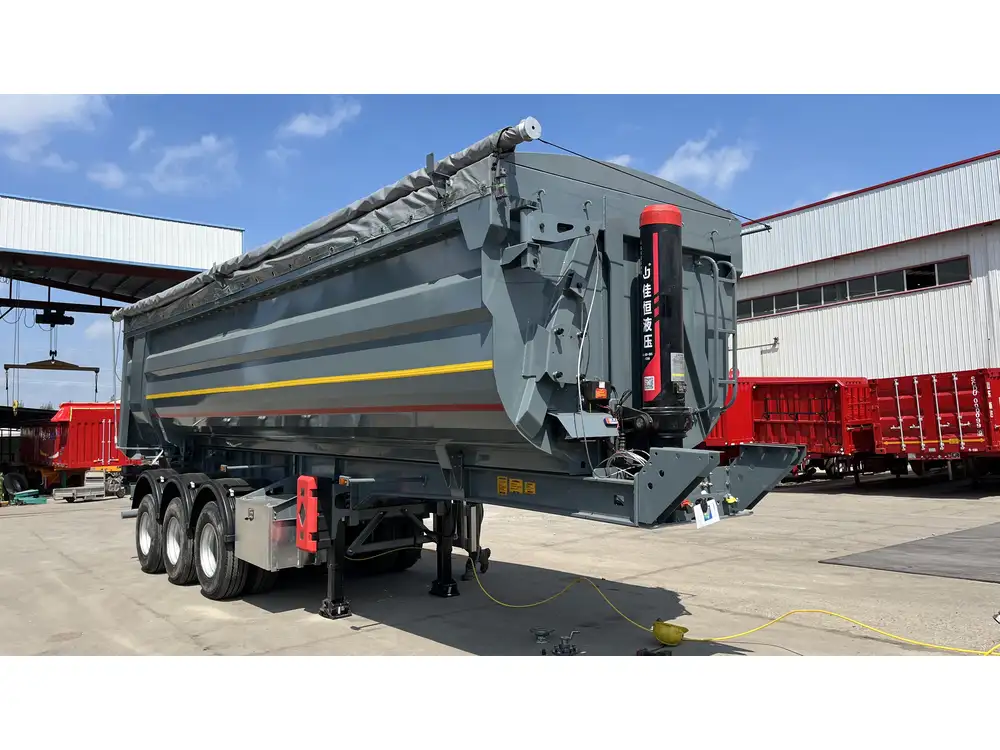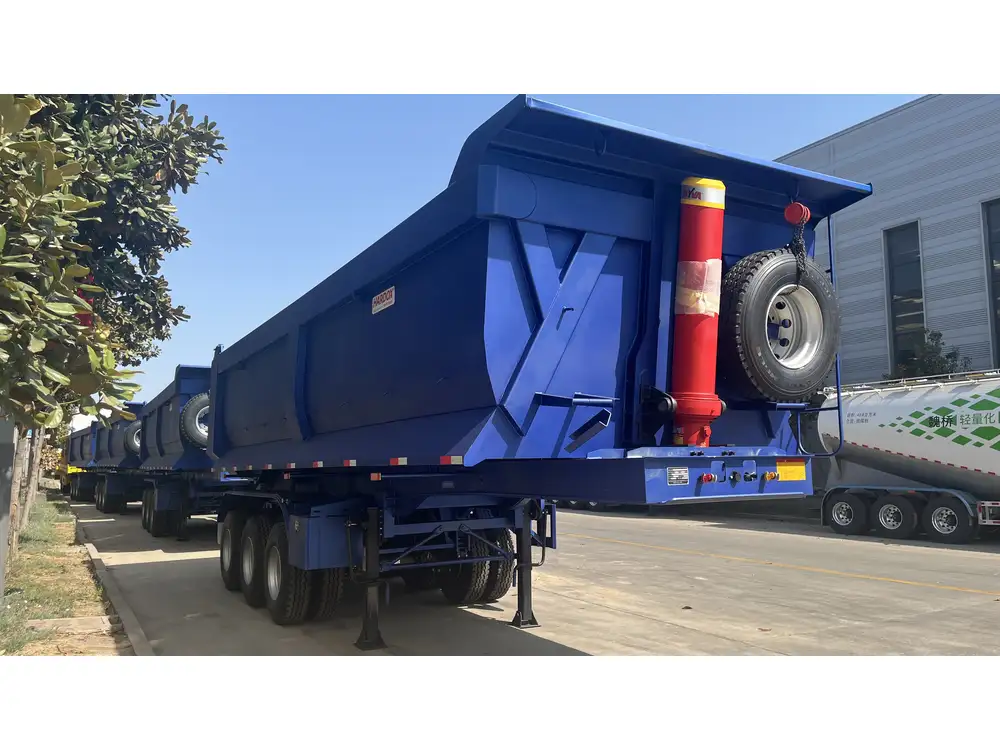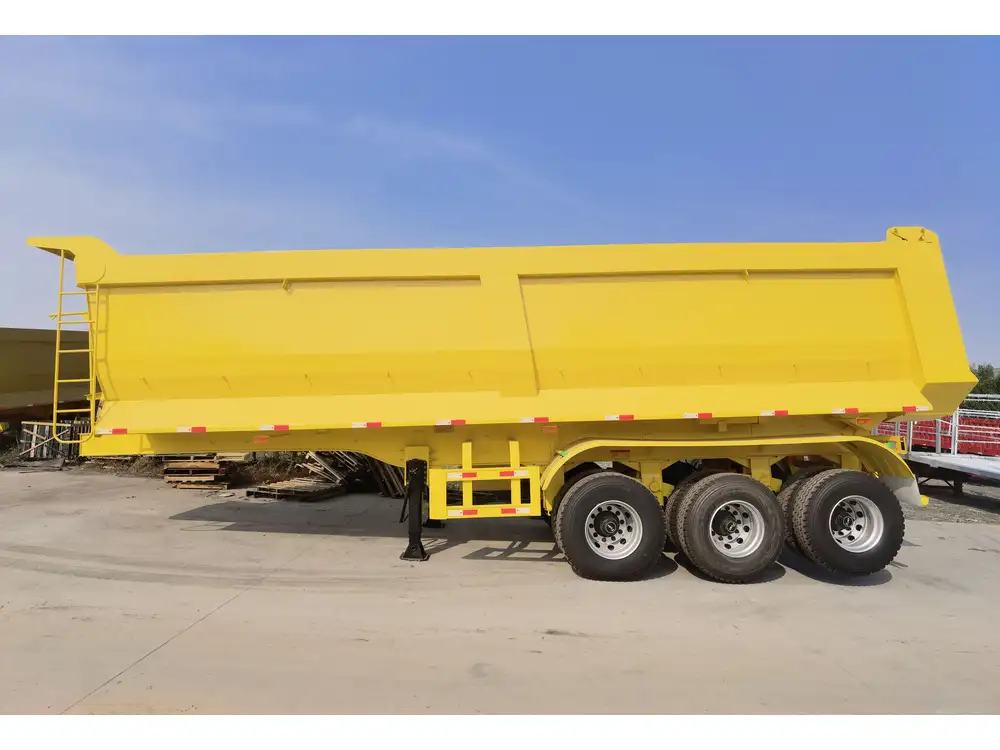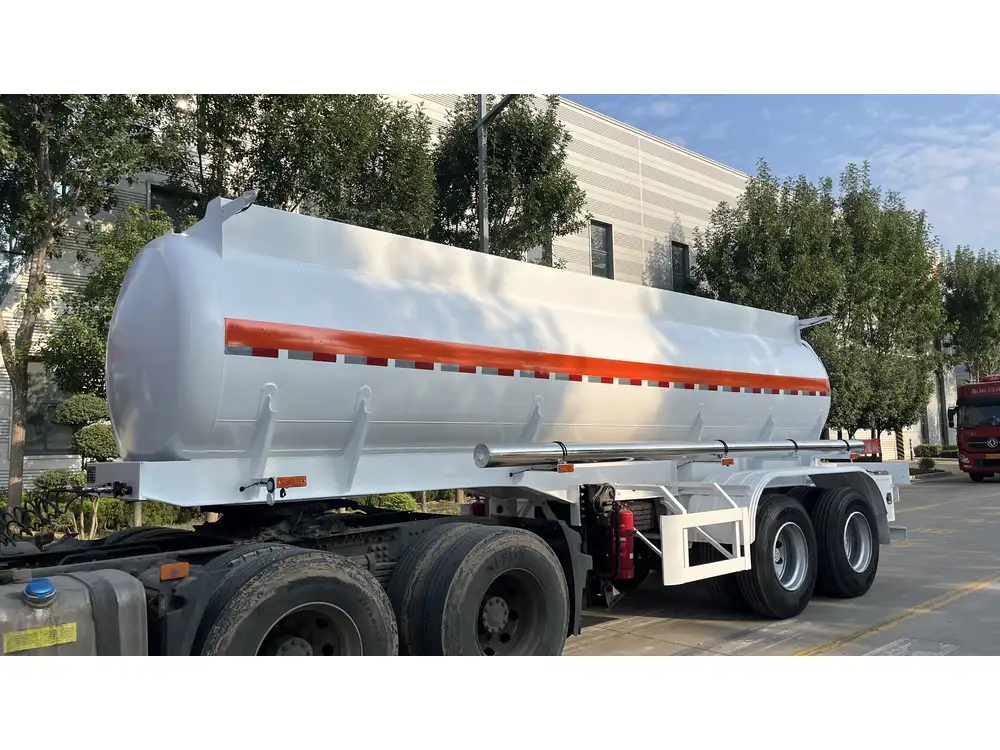When it comes to managing the logistics of owning a trailer, one question frequently arises among trailer owners: can I dump my trailer at home? This inquiry brings forth a myriad of considerations that encapsulate local laws, practical implications, and the nuances of storage solutions. In this comprehensive guide, we will navigate through these elements, providing insights into how best to handle your trailer ownership responsibly and legally.
Table of Contents
- Understanding Local Laws and Regulations
- Practical Considerations for Storing a Trailer at Home
- Alternatives to Home Storage
- Tips for Safe and Effective Trailer Parking
- FAQs About Trailer Storage
- Conclusion: Making the Right Choice
Understanding Local Laws and Regulations
The first step in determining if you can dump your trailer at home involves understanding the local laws applied in your area. Cities, towns, and even counties may have specific regulations governing the parking of trailers in residential areas.

Zoning Laws
In many jurisdictions, zoning laws explicitly state whether trailers can be parked in residential zones. Often, these regulations include stipulations regarding:
- Duration of Parking: Many communities allow only short-term parking for trailers—typically a few days for loading or unloading purposes.
- Type of Trailer: Certain types of trailers (e.g., recreational vehicles, utility trailers) may have different regulations.
- Location Restrictions: Some places may prohibit parking trailers on public streets or in driveways.
Homeowners Association (HOA) Restrictions
If your home is part of an HOA, additional restrictions may come into play. HOAs have the authority to set their own rules regarding visible storage and parking of vehicles, including trailers. Key points to remember include:
- Visibility from the Street: Many HOAs require that trailers be parked out of sight—either in a garage or behind a privacy fence.
- Permit Requirements: Some associations may even require a permit for storing trailers on the property.
Local Guidelines
It is highly advisable to consult local government websites or ordinances regarding vehicle and trailer parking rules. Some municipalities provide explicit guidelines, including:
- Maximum Vehicle Dimensions: There may be regulations concerning the size of trailers that can be kept on residential property.
- Penalties for Non-Compliance: Ignoring local parking ordinances can lead to fines, towing, or other enforcement actions.

Practical Considerations for Storing a Trailer at Home
Assuming you’ve navigated the legal landscape and found it’s permissible to store your trailer at home, consider the practical aspects of doing so effectively.
Space Requirements
Before moving your trailer to your residence, assess your available space. Considerations include:
- Driveway Capacity: Make sure you have enough space to accommodate the trailer without blocking any access points.
- Height Restrictions: If you have a overhang or tree branches near your parking area, ensure there’s sufficient clearance.
Security Measures
Protecting your investment should be a primary concern. Here are some proactive steps:
- Physical Barriers: Installing a fence can deter theft and provide a sense of security.
- Locking Mechanisms: Use locks on both the hitch and the trailer itself.
- Security Cameras: Consider setting up security cameras for added surveillance.

Weather Protection
Expose trailers to harsh weather conditions can lead to deterioration. Consider the following:
- Covers: Invest in a weather-resistant cover designed for your type of trailer.
- Garage Storage: Whenever possible, store your trailer in a garage or enclosed structure.
Alternatives to Home Storage
In certain situations, parking your trailer at home may not be viable. Here are some alternative solutions:
Self-Storage Facilities
Self-storage units often have parking spaces specifically designated for vehicles like trailers. These spaces offer various benefits, including:
- Increased Security: Facilities typically have better security features than residential areas.
- Climate Control Options: Some storage units offer climate-controlled environments, preventing wear and tear from extreme weather.

Dedicated Trailer Storage Lots
Some businesses specialize in trailer storage, providing long-term and short-term options. This can be beneficial for:
- Variety of Sizes: Storage lots often cater to various trailer sizes.
- Flexibility: You can select the duration of your storage needs without worrying about local parking restrictions.
Peer-to-Peer Storage Solutions
An emerging trend is the utilization of peer-to-peer platforms that connect individuals needing storage with homeowners offering space.
- Cost-Efficiency: Renting space from a neighbor may be more affordable than leasing from a facility.
- Community Engagement: Building local relationships can be a rewarding aspect of this storage solution.
Tips for Safe and Effective Trailer Parking
Should you decide to park your trailer at home, here are some practical tips to ensure safe and effective storage:

Choose the Right Location
Identify the best area on your property to park your trailer:
- Flat Ground: To prevent rolling or tipping, park on flat and stable ground.
- Away From Traffic: Position your trailer away from driveways and paths to minimize hazards.
Use Wheel Chocks
Incorporating wheel chocks can provide an additional layer of safety by preventing movement when parked.
- Material Selection: Use robust materials designed to withstand the weight of the trailer.
- Proper Placement: Position chocks snugly against the tires to maximize effectiveness.
Keep the Area Clean
Maintaining a clutter-free environment around your trailer can enhance safety and accessibility:
- Regular Inspections: Periodically inspect the area for any potential hazards, such as debris or obstacles.
- Routine Cleaning: It’s helpful to keep the space clean to avoid any risk of physical damage when handling the trailer or maneuvering around it.

FAQs About Trailer Storage
What Should I Do if My Trailer Doesn’t Fit in My Driveway?
If the trailer is too large for your driveway, consider utilizing nearby self-storage facilities or dedicated trailer storage lots that can accommodate larger vehicles.
How Long Can I Park My Trailer on the Street?
This duration varies by location, but generally, parking a trailer on the street for an extended period is not allowed. Always check local regulations for specifics.

Can I Work on My Trailer at Home?
If you’re considering maintenance work, consult local ordinances as many cities have restrictions on mechanical work done outdoors. Adhere to clean-up guidelines to prevent fines.
What Kind of Insurance Do I Need for My Trailer?
It’s wise to have trailer-specific insurance coverage that protects against damage, theft, and liability. Consult with your insurance agent to understand policy options available to you.
Conclusion: Making the Right Choice
Navigating the question of whether you can dump your trailer at home involves a careful consideration of legal regulations, practical storage solutions, and safety measures. Determining your local laws, evaluating your options, and implementing best practices will ensure you make an informed decision that protects your investment and complies with community standards.
In summary, while the question may seem straightforward, the answer requires a layered understanding of various factors at play. Thus, whether you choose home storage or explore other options, ensure that your trailer remains secure, safe, and, most importantly, compliant with all relevant guidelines. Your investment deserves the best care, whether parked at home or in a designated facility.



